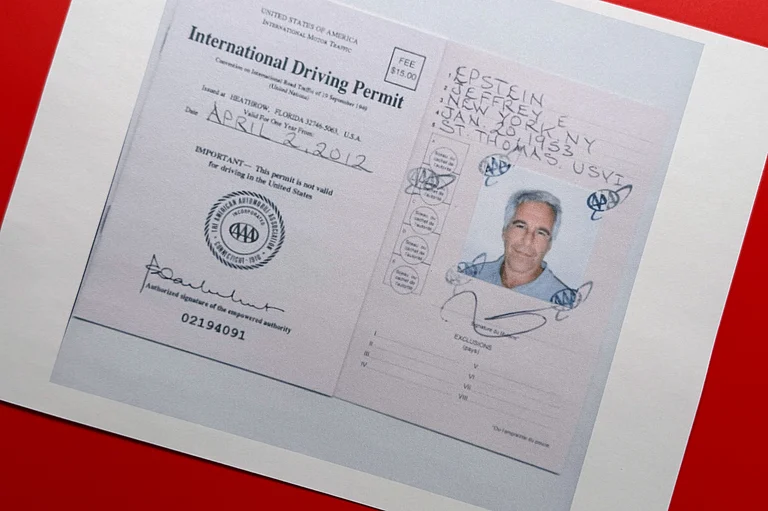It is less heartfelt admiration of Mohammed Ali Jinnah than visceral dislike of Jawaharlal Nehru that drives this book. It makes one wonder what makes Jaswant so disparage Panditji. Perhaps psychiatrists might tell us whether emotion overcame young Major Jaswant Singh as he faced the Chinese hordes swarming into the North-East Frontier Agency in the autumn of 1962.
This animus, at once personal and political, vitiates what otherwise might have been a significant contribution of scholarship to our understanding of a period in our history that will stay with us till we arrive at an accommodation with Pakistan. Jaswant Singh lights up several forgotten but critical phases of our struggle for freedom and brings to life many a lost player in that struggle. He poses questions that must continuously be answered and be continuously tested against the evidence. Moreover, that it is a serving Indian politician, holding the high office of Leader of the Opposition in the Rajya Sabha, who found the time and energy to research and write this massive 525-page tome, with endnotes running to a further 144 pages, boosts the prestige of all us politicians and constitutes a fitting rejoinder to that majority who loathe all politicians and consider them a bunch of ill-mannered, ill-educated bounders.
If I were his college tutor, I would give Jaswant an A for his absorbing treatment of the much neglected 1927-29 period of our struggle for independence, when Jinnah’s ‘Delhi Proposals’ were played out to their sad end. It was also Jinnah’s apogee as an ‘ambassador of Hindu-Muslim unity’. Jinnah first earned that sobriquet (from Gopal Krishna Gokhale) when he persuaded the Congress in 1915-16 to accept separate electorates for Hindus and Muslims. Yet, he never deserved the sobriquet more than when, after seeing the communal horrors unleashed through the ‘Turbulent Twenties’ (Jaswant’s telling chapter heading) by competitive elections based on separate electorates, Jinnah repudiated his greatest political achievement to advocate joint electorates, provided India’s Muslims were granted 33 per cent reservations, as against their population share of 26 per cent, in the Central Legislature. In doing so, he was harking back to a proposal he had first made in 1909 after the Morley-Minto reforms that brought upon our collective heads the disaster of separate electorates.
Jinnah’s Delhi Proposals, having been accepted by Motilal Nehru and Tej Bahadur Sapru, and then endorsed by the Congress Working Committee, were rejected by the Congress plenary at Calcutta in December 1928, leading to Mohammed Ali Johar (Gandhi’s companion in the Khilafat satyagraha) combining his two favourite prejudices in a single phrase when, at the parallel Muslim League session, he denounced Gandhi: “You are a bania, you are a Jew”!
As we can now see in hindsight, the Delhi Proposals were the last opportunity for forestalling Pakistan, an opportunity passed up by Gandhiji and the Congress, largely at the instance of the Hindu minority leaders of provinces where Muslims were in a majority. It was also barely mentioned in Panditji’s celebrated Autobiography. Jaswant would have got an A+ from me if he had examined and underscored the reasons for this casual treatment of a historic opportunity. At least some of the reasons lie revealed but little comprehended in the chapter itself. The fact is, by 1927 neither Jinnah nor the Muslim League counted for much even in the Muslim community, let alone the country at large. Jaswant lets fall the startling statistic that the entire registered membership of the Muslim League at the time amounted to no more than 1,200. He could have added that the plenary session of the Muslim League in 1929 in Bombay had to be postponed for want of a quorum as not even the required 75 members were present. The Delhi Proposals had split the League and Jinnah’s hold over even the rump that stayed with him was uncertain. By walking out of the mainstream freedom movement in 1920, largely out of pique at Gandhi’s rise, Jinnah had marginalised himself and the League. He emerged phoenix-like from the ashes of his ‘ambassador of unity’ self by becoming through the Thirties and into the Forties everything he had hitherto abhorred: the ambassador of Hindu-Muslim separatism, a mass agitator and rabid communalist, not above unleashing violence and genocide in the name of a religion in which he barely believed. He succeeded. That is where the origins of Partition—and its horrors—lie.

| Savarkar backed Jinnah's Two-Nation claim |
The origins of Partition also lie in the poisonous spread of Hindu nationalism through the same period. “Hindutva” emerged from V.D. Savarkar’s pen as the exact counterpart of the Muslim demand for a homeland of their own. Savarkar (an atheist, not unlike Jinnah) helpfully translated the word he had coined —“Hindutva”—into ‘Hindudom’ (in imitation of ‘Christendom’), a land where the Hindus would rule and the others would be subordinate or expelled. It was less a religious than a political demand, as Jinnah’s ‘Pakistan’ demand was 20 years later. Little wonder that at Nagpur on August 15, 1943—ironically, exactly four years before Independence Day —Savarkar enthusiastically endorsed Jinnah’s claim to Two Nations. Savarkar’s views spawned Hedgewar, Golwalkar and the rss, and animated the Hindu Mahasabha (besides eventually giving us first the Jan Sangh and now the Bharatiya Janata Party). Here lie the Hindu origins of Partition. Curiously, none of this figures in Jaswant’s recitation of the ‘Turbulent Twenties’. Savarkar is not even mentioned; the rss is dismissed in a few pages; the Jama Masjid’s generous invitation to Swami Shraddhananda to address the faithful after Jumma prayers is recounted at length but the ghastly communalism and bloodletting fostered by the rival shuddhi and tabligh movements barely mentioned. Clearly, Jaswant Singh the scholar embarrasses Jaswant Singh, lately of the BJP!
Instead, he turns the full blast of his ire on Jawaharlal Nehru. Suddenly, with no prior warning or explanation, Jawaharlal steps bang into the mainstream of Jaswant’s narrative, thus: “Jawaharlal’s virulent dislike of Jinnah....” The thesis apparently is that if Jawaharlal had shared Jaswant’s admiration for Jinnah, there would have been no Partition! Here was Jawaharlal, a man of principle, fighting the discredited Jinnah of the Thirties tooth and nail for this once ambassador of unity’s “amazing farrago of nonsense and narrow-minded communalism” when, it would appear from Jaswant’s bias, the appeasement of Muslim communalism (and its counterpart, the appeasement of Hindu communalism) would have been the better way of securing the overriding goal of a united India. Such an India would, of course, (like Lebanon) have been impaled on the horns of competing communalisms. But, thinks Jaswant, such competitive communalism would at least have spared us the imported ‘secularism’ of the Nehru kind. (It makes one wonder why the BJP has gone to all the trouble of expelling its most subtle communalist).
Neither does Jaswant mention that the ’20s was also the period when the earlier joint Hindu-Muslim demand for the separation of Sindh from Bombay province (on the secular ground that Bombay-Karachi by sea was a journey of nearly 800 miles) was converted into a vicious communal confrontation by Sindh’s Hindu leaders. These leaders, the young Advani’s mentors, dreaded exchanging their Hindu majority in Bombay province for a Muslim majority in Sindh.
Such minorityism was as much part of the political reality in Hindu-minority areas such as Sindh, Balochistan, NWFP, undivided Punjab and undivided Bengal as in Muslim-minority areas like UP, Bihar and much of the rest of India. Jinnah’s solution (that is, the solution of the ageing Jinnah of the ’30s and ’40s) was to compartmentalise the majorities in their respective boxes; Jawaharlal’s was to take India out of the darkness of this kind of communalism into the sunlit uplands of a secular India where all communities would have an equal stake in building a common national identity.
He sought to do this by demanding that the Brits quit; that independent India hold elections on the basis of universal adult suffrage so as to draft a truly national Constitution; and he was convinced that such a Constitution would ensure fundamental rights for all, whatever their community, and affirmative action for the disadvantaged.
Two further points: at quite inordinate length, Jaswant swallows hook, line and sinker, the standard Pakistani Mohajir line that if only Chaudhury Khaliquzzaman (the role model for the shifty, slimy neta of that masterpiece, Garam Hawa) had been included by Jawaharlal in the UP cabinet after the 1937 elections, there would have been no Partition. Because, he says, the Muslim League would then have had to take some of the blame for the riots that they (and their Hindu fellow-communalists) were inciting all over jis desh mein Ganga behti hai. It is precisely unprincipled opportunism of this kind that Nehru, the man of principle, and Nehru, the impassioned votary of Gandhiji’s insistence on the ends never justifying the means, resisted.
The second is Nehru’s rejection of the Cabinet Mission’s contortions and acquiescence in 1947 in the partition of India. Jaswant misses the essential point that Partition was the price the Brits exacted for the grant of Independence. If the moment had not been seized, a moment brought on through the US bankrupting Britain by insisting on the repayment of war loans—an insistence reversed only after the blast of the Cold War in 1948 reversed US foreign policy priorities—independence would have been indefinitely delayed. Besides, colonial India might have had to endure all the horrors of the last days of the British empire—the vicious unleashing in the Fifties of Imperial violence on the Kenyans (ten thousand Mau Mau slaughtered to avenge 32 White deaths), the Malays, the Cypriots. Mountbatten’s Operation Scuttle and Partition were hitched together as the only package deal on offer. The Congress reluctantly but eventually understood this; even Syama Prasad Mookerjee, member of Nehru’s cabinet before leaving to found the Jan Sangh, understood this: the Hindu extremist forces outside the mainstream of the freedom movement did not. Hence, Nathuram Godse.
Independent India has substantially achieved Jawaharlal’s goals. Independent Pakistan has woefully failed its founder’s vision. In the most truly brilliant section of the book—on the Gandhi-Jinnah talks of September 1944, for which I would give him A++—Jaswant liberally quotes from Jinnah’s ‘farrago of nonsense’: that Pakistan would be a “perfect democracy” (!), that Gurmukhi would be recognised “if the Sikhs want it (sic)” (in a Pakistan that eventually refused to recognise the majority Bengali language and got split for its pains). As Gandhi summed it up to Rajaji, “I aim to prove from his own words that the whole of the Pakistan proposition is absurd.”
Gandhi may have won the argument but Jinnah won his Pakistan—and neither Gandhiji’s endeavours nor the Maulana’s pleadings nor Sardar Patel’s ‘no nonsense’ could stop it. Pakistan is an irreversible historical fact and no amount of blame apportionment can change that: “Nor all your piety nor tears wash out a word of it”. It is not by endlessly scratching the scab on the wounds of Partition that we can take India-Pakistan relations into the 21st century. Instead of miring it in the 12th century establishment of the first Muslim sultanate in India, as most of Jaswant’s erstwhile political colleagues are wont to do. Indeed, as Jaswant himself attempts to do in his wholly C minus opening chapter recounting India’s early encounters with Islam. We need a healthy engagement with Pakistan, based on an uninterrupted and uninterruptible dialogue. But that, of course, is why I’ll never make it to foreign minister! Jaswant did—and I doff my Gorkha cap to him as he disappears into his Dandakaranya.
(The reviewer is a former minister and author of Confessions of a Secular Fundamentalist (Penguin) and Pakistan Papers (UBSPD).
























